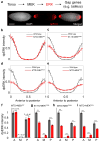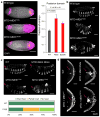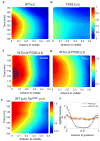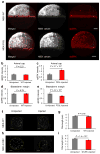Divergent effects of intrinsically active MEK variants on developmental Ras signaling
- PMID: 28166211
- PMCID: PMC5621734
- DOI: 10.1038/ng.3780
Divergent effects of intrinsically active MEK variants on developmental Ras signaling
Abstract
Germline mutations in Ras pathway components are associated with a large class of human developmental abnormalities, known as RASopathies, that are characterized by a range of structural and functional phenotypes, including cardiac defects and neurocognitive delays. Although it is generally believed that RASopathies are caused by altered levels of pathway activation, the signaling changes in developing tissues remain largely unknown. We used assays with spatiotemporal resolution in Drosophila melanogaster (fruit fly) and Danio rerio (zebrafish) to quantify signaling changes caused by mutations in MAP2K1 (encoding MEK), a core component of the Ras pathway that is mutated in both RASopathies and cancers in humans. Surprisingly, we discovered that intrinsically active MEK variants can both increase and reduce the levels of pathway activation in vivo. The sign of the effect depends on cellular context, implying that some of the emerging phenotypes in RASopathies may be caused by increased, as well as attenuated, levels of Ras signaling.
Figures






References
-
- Tartaglia M, et al. Mutations in PTPN11, encoding the protein tyrosine phosphatase SHP-2, cause Noonan syndrome. Nat Genet. 2001;29:465–468. - PubMed
-
- Rodriguez-Viciana P, et al. Germline mutations in genes within the MAPK pathway cause cardio-facio-cutaneous syndrome. Science. 2006;311:1287–90. - PubMed
MeSH terms
Substances
Grants and funding
LinkOut - more resources
Full Text Sources
Other Literature Sources
Molecular Biology Databases
Miscellaneous

